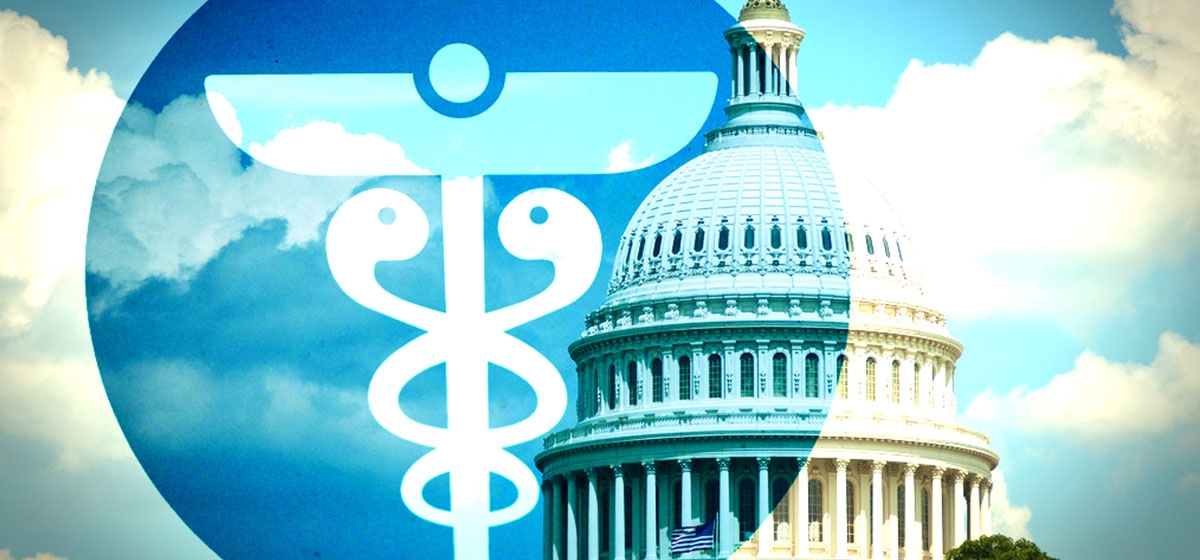Loose Change, Part III

In my last post I breathlessly announced that I held the solution to the American healthcare dilemma in my hot little hands. While the hapless Republicans and Democrats are stumbling around blaming each other and wishing the healthcare issue would just blow away, your humble blogger has solved the problem without breathing hard.
In order to understand just how brilliant this solution is, if I do say so myself, we will have to engage in one of those thought experiments for which this blog is so justly infamous. Let’s imagine that it is 2008 and the Republicans have just taken over Washington, D.C. They promptly set aside all the rules of comity and, in 2010, enacted an omnibus healthcare bill.
This bill wouldn’t have a namby-pamby, Democratic title like the Patient Protection and Affordable Care Act. No, no, no, it would have a solid, sensible Republican title, something like The Great American Free Market Healthcare Act of 2010. The Republicans would know—indeed, everyone in America would know—that the bill would have many things wrong with it, but that was no problem. The Republicans planned to control D.C. for many years to come, and they would fix the problems as they arose.
Alas, a mere eight months after the GAFMH Act was signed into law, the Dems retook control of the House and the GAFMH was left twisting slowly in the wind. The Republicans owned the bill and it wasn’t working. Soon enough, the Dems would sweep to power in Washington.
Do we detect a pattern here? We do. Therefore, here’s what needs to happen. On one fine day the Republicans should repeal the Affordable Care Act. That would discharge their promise to the people who voted for them. The very next day they should enact a new healthcare bill that is essentially identical to the ACA. Consider what would transpire.
At first there would be the usual nonsense. “Look at that!” the Dems would gloat. “The Republicans are so stupid they couldn’t think of anything to do but reenact our own bill!” “That’s because we’re not through with it yet, you cretins!” would be the Republican rejoinder.
But when the dust settled two remarkable things would happen, one obvious and one maybe not so obvious. The first is that a great many Democrats—not, of course, the loony left—would secretly be grateful to the Republicans for keeping intact Barack Obama’s signature accomplishment. They would thereafter work with the Republicans to fix the problems with the ACA—I mean the ACA 2.0—even though some of those fixes would be Republican-tinted.
Moderates in Congress would know, because everyone in America knows, that the characteristic problem with Democratic healthcare is inclusiveness-without-regard-to-cost, while the characteristic problem with Republican healthcare is cost-control-without-regard-to-inclusiveness. Working together, moderate Republicans and moderate Democrats would gradually create a first-rate healthcare bill.
The second outcome is more subtle but, in its way, equally important. It is epitomized by the paradoxical fact that the ACA is least popular in many parts of the country—Appalachia, the mid-south, the non-coastal west—where it is most needed. The resolution to that paradox involves the dirty little secret that a great many Americans don’t view the ACA as a healthcare bill at all—they view it as a welfare bill, another government handout enacted by bleeding-heart Democrats. But nobody has ever accused the Republicans of being bleeding hearts, so if the Republicans enact a bill identical to the ACA, but with a different, solid, Republican title, why then it must be okay!
As Francis Fukuyama recently noted, the reason the ACA is so unpopular in so many poor white communities is because they know that “Obamacare was designed to benefit people other than themselves.” In 2010, when the ACA was passed, not a single Democrat—no one in Congress, no one anywhere in the Democratic policy establishment—even knew there were poor white people in America. Or cared.
Despite that, more whites than blacks or Hispanics have been helped by the ACA, and Republican backing for similar legislation would almost certainly improve its low public approval ratings. What is needed, obviously, isn’t legislation that’s targeted to minorities or legislation that’s targeted to whites, but legislation that’s targeted to people who need it.
So all those bums in Washington have to do is read this blog post and get busy. Americans will goggle in astonishment. Cooperation in Congress? A terrific healthcare act that offers broad coverage and doesn’t break the bank? Where the hell are we, Singapore?
Next up: Loose Change, Part IV





